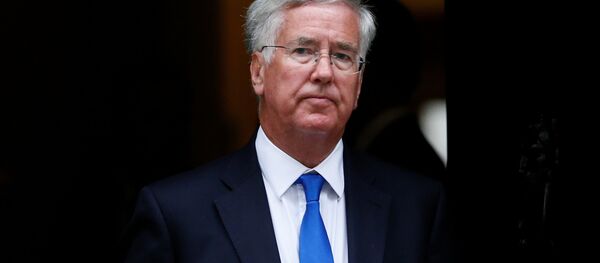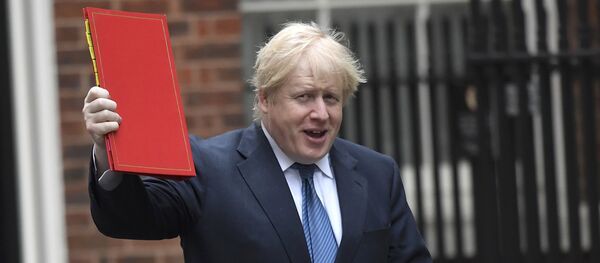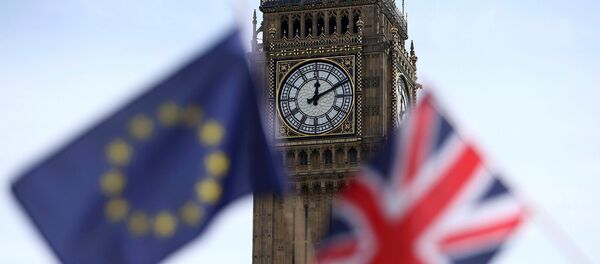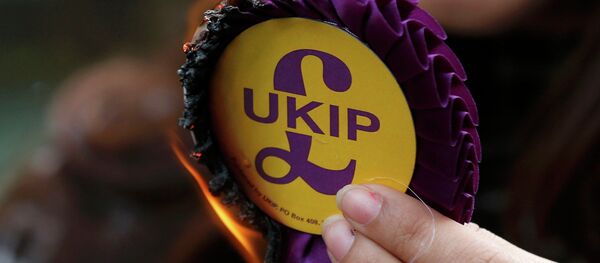According to the leaked minutes of a March 7 Brexit cabinet meeting, excerpts of which were published by The Telegraph over the weekend, senior ministers from the May government are confident that London had a "very strong hand" vis-à-vis Brussels when it comes to defense. This, they hint, may very well become one of London's key advantages in the course of Brexit negotiations.
Secretary of State for Defense Michael Fallon said that "the EU needs" the UK's military capabilities, particularly in light of 'Russian aggression' in Europe.
"Insecurity in Europe is at its highest since the Cold War. There is increased Russian aggression," Fallon claimed, hinting that the hysteria around Moscow gives London "high cards to play at the negotiating table on security."
Russian observers have taken the UK officials' remarks to mean that London will attempt to offer Europe a security pact in exchange for a softening in Brussels' Brexit demands.
As for Fallon's claims of 'Russian aggression', Russian officials have made their position on that issue very clear. Last week, President Putin rejected claims that Russia posed a 'threat' to the North Atlantic Alliance, emphasizing that NATO aviation was far more active in the Baltic Sea than the Russian Air Force. The president also recalled that the US continues to spend more on defense than any other country in the world. Earlier, Foreign Minister Sergei Lavrov said that accusations of a Russian threat to the Baltic countries were "absurd" and "unfounded."
Moscow has repeatedly indicated that it sees NATO's open-ended expansion as an alarming development and a risk to the security and stability of the European continent. In recent years, the alliance has substantially increased its presence on Russia's western borders, in countries including Poland, Lithuania, Latvia and Estonia, with the US setting up missile defense in Poland and Romania. NATO has also substantially enhanced its presence in the Baltic and Black seas.
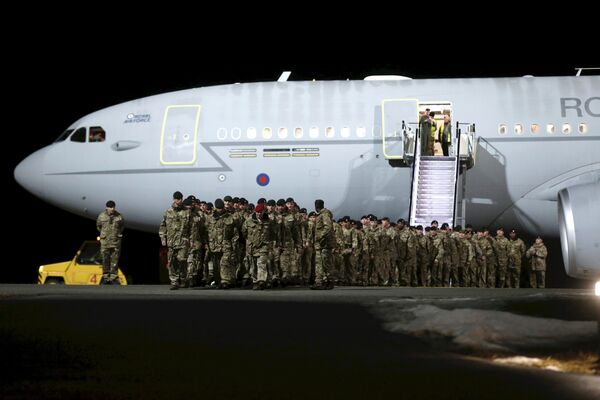
This time, the situation is different, Akopov noted. "The UK, which previously acted as the main vehicle for the US policy of containing Russia in Europe, now needs to play up the 'Russian threat' purely for its own purposes." London, he explained, "wants to explain to the Europeans that even after leaving, the union would still need the UK to serve as a defender against Russia."
No one doubts the UK's military capabilities. The country is a nuclear power, has a major fleet, and a well-disciplined professional army.
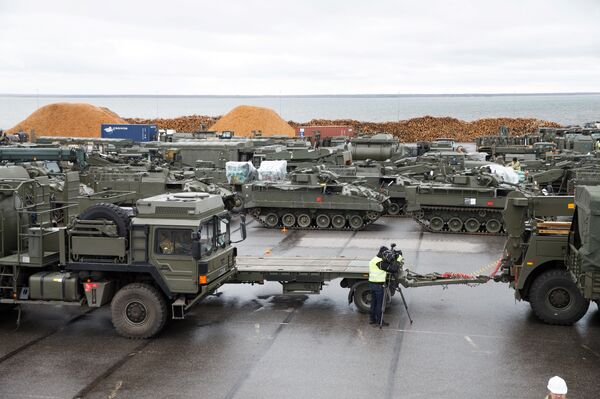
London, therefore, seems set on offering the Europeans protection, soothing Brussels and insisting that Europe will be able to count on the British Army, the Royal Navy, and the UK's arsenal of nuclear weapons.
The goal of such a proposal would be obvious, Akopov noted. Brussels had planned to make an example of the UK for any other would-be defectors, forcing them to pay 50-60 billion euros in penalties, not to mention the threat of closing its markets to UK companies, particularly in the banking sector.
London is hoping to pay a much smaller figure; the problem, according to Akopov, is that they have few other levers which would enable them to influence or exert pressure on their European partners. "In these circumstances, the May government sees the 'Russian threat' as an excellent pretext for demanding a 'discount' from Brussels, and a big discount at that. After all, what's at stake is nothing less than the security of the entire European Union," or so London's logic goes.
Unfortunately for London, the journalist suggested it isn't likely to succeed with this 'bluff'. "Firstly, the idea of a 'Russian threat' to the EU was invented by London itself, together with the US, the Poles, the Balts, and the Atlanticists among the Europeans. The confrontation with Russia was imposed on Europe in large part thanks to efforts by the UK itself." Therefore, demanding that the EU also pay the costs for a fight with this mythical threat is simply too brazen, even by Anglo-Saxon standards."
Political scientist Mikhail Alexandrov disagrees. The observer noted that London has good reason to be confident in its poker hand, because it can expect Washington's support.
"It would be advantageous for Washington if the European Union was significantly weakened, if not disintegrated altogether; then the US could put emphasis on bilateral relations with European countries," the expert explained.
"In this situation," Alexandrov stressed, "it is expedient for London to intimidate the Balts or the Poles with the idea of a 'Russian threat', using their lobbying abilities within the EU to put pressure on Brussels, and forcing them to make concessions in trade and economics." Otherwise, the UK could threaten to pull its troops out of Eastern Europe, terminate its subsidies to NATO, or hit the Europeans in some other way.
"It's necessary to understand that Russia is not interested in a strong European Union. What's being done in Ukraine right now is the work of the EU. The effort to pull the Baltics into NATO, the Eastern Partnership program, aimed at pulling Belarus and Armenia away from Moscow – these are also consequences of EU policy. In fact, we, along with the London and Washington, are interested in the decentralization of the EU, because when the EU acts as a monolithic force, it essentially turns into a German bloc, a kind of 'Fourth Reich'. Why would we need such a thing?" the analyst concluded.

